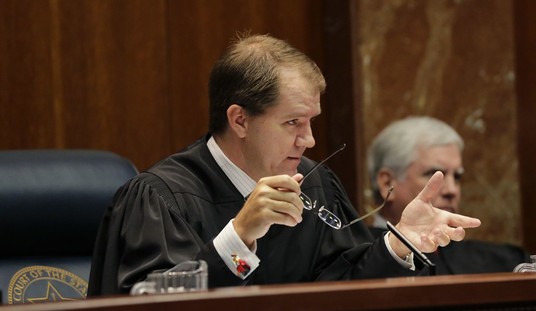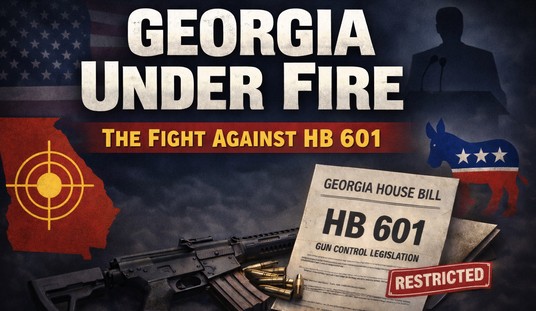Tomorrow’s going to be a big day for fans of our freedom of speech and our right to keep and bear arms. A federal judge in California will be hearing arguments about whether the state’s new law forbidding the firearm industry from “advertising and & marketing communication” that’s attractive to minors should remain in effect or whether an injunction should be granted blocking enforcement of the while it’s being challenged in court.
It’s hard to argue that the law hasn’t already had a chilling effect on both protected speech and youth shooting sports. A number of junior shooting leagues have been forced to suspend their operation across the state rather than incur the risk of a $25,000 fine for promoting guns to minors. Gun makers, meanwhile, cannot sell single-shot .22 rifles meant to teach kids how to safely and responsibly handle a firearm; and publications like Junior Shooters magazine have in essence been banned from the state because of the content between its covers.
The current lawsuit is based primarily on First Amendment grounds, though the California Rifle & Pistol Association says its prepared to file a second lawsuit based on Second Amendment infringements if necessary. The state of Califoria, through Attorney General Rob Bonta’s office, claims the plaintiffs are merely misreading the text of AB 2571, and that it only bars commercial speech concerning illegal activity. From the defendants’ reply brief:
Here, AB 2571 is properly understood as a regulation of commercial speech, not core political speech, as Plaintiffs contend. It prohibits a “firearm industry member” from advertising, marketing, or arranging for placement of an advertising or marketing communication concerning any firearm-related product in a manner that is designed, intended, or reasonably appears to be attractive to minors
Thus, it regulates speech with an obvious economic or commercial motivation. The statute also defines “marketing or advertising” with reference to commercial transactions, i.e., those involving a proposed “exchange for monetary compensation.” Thus, AB 2571 regulates speech constituting an “advertisement.” AB 2571 also explicitly regulates advertising and marketing in connection with a “particular product” ), that is, “firearm related products”. Therefore, all of the hallmarks for applying commercial speech doctrine are present here.
Plaintiffs argue incorrectly that AB 2571 regulates speech that “ranges from purely political to commercial,” because it applies to (1) magazines that include images and articles depicting minors enjoying shooting sports and selling advertising space for “firearm-related products;” (2) organizations that sell and give away branded merchandise that promote their organization and messages; and (3) entities that advertise and market lawful recreational and competitive shooting events, educational programs, safety courses, and gun shows where youth are likely to attend and use firearm-related products. In support, they point to the law’s language prohibiting advertising and marketing “concerning” a firearm-related product, as well as to the definition of “marketing or advertising,” which includes commercial appeals to “use” a particular product.
Plaintiffs read AB 2571 too broadly. The statute should be read holistically and in its entirety, and with a view to the dangers that the Legislature designed it to address. Plaintiffs largely ignore the statute’s narrow definition of “firearm-related product,” which encompasses only certain tangible products, described as “items” – firearms, their components, and accessories. Instead, Plaintiffs argue that, despite the fact that the law includes no express reference to the broad swath of educational, sporting and political activity they invoke, the statute’s prohibition against marketing “concerning” certain tangible products encompasses anything and everything related to firearms in any way. This reading stretches AB 2571 too far and renders the narrow definition of “firearm-related products” superfluous. Implicit in the terms “marketing or advertising” in relation to any specific product is an offer to engage in a commercial transaction for the sale and purchase of that product; AB 2571 does not purport to restrict communications of any kind about firearms or firearm-related activities. The title of the bill – “Marketing Firearms to Minors” – indicates what it regulates and how it should be interpreted and applied.
I think Bonta’s getting a little too cute here. If, as he claims, AB 2571 is really about preventing commercial sales of firearms to minors, then the law is completely unnecessary given that it’s illegal for minors to purchase or possess a firearm.
It’s also absurd to claim that the law is only designed to prohibit commercial speech about “firearm-related products” that minors might find appealing, yet it doesn’t touch “firearm-related activities” that, by their very nature, involve firearms and “related products.”
The real end goal of AB 2571 isn’t to block advertising encouraging kids to go out and buy a gun, since that’s not happening. Instead, it’s about discouraging minors from becoming interested in firearms by barring adults from engaging in any advertising or marketing communications that might “reasonably” be appealing to minors. Contrary to what Bonta claims, there’s plenty of advertising and marketing that doesn’t revolve around the purchase of a particular product, and there’s also plenty of advertising and marketing that may appeal to minors but is targeted towards adults. Would the state of California consider a gun licensed for use in a video game like Call of Duty to be a violation of AB 2571 because kids play video games? Quite possibly, even though most Call of Duty players are over the age of 18.
Contrary to Bonta’s claims, it’s readily apparent that the purpose of AB2571 is to stop the promotion of safe and responsible gun use among the next generation of lawful gun owners by killing off youth shooting sports programs in which thousands of California kids participate and placing a muzzle on anyone who would promote competitive shooting and the tools that are used. There’s an equally strong case to be made that AB 2571 is unconstitutional on Second Amendment grounds, but hopefully that won’t be necessary and the courts will soon put a stop to California’s assault on the First Amendment rights of Second Amendment supporters.









